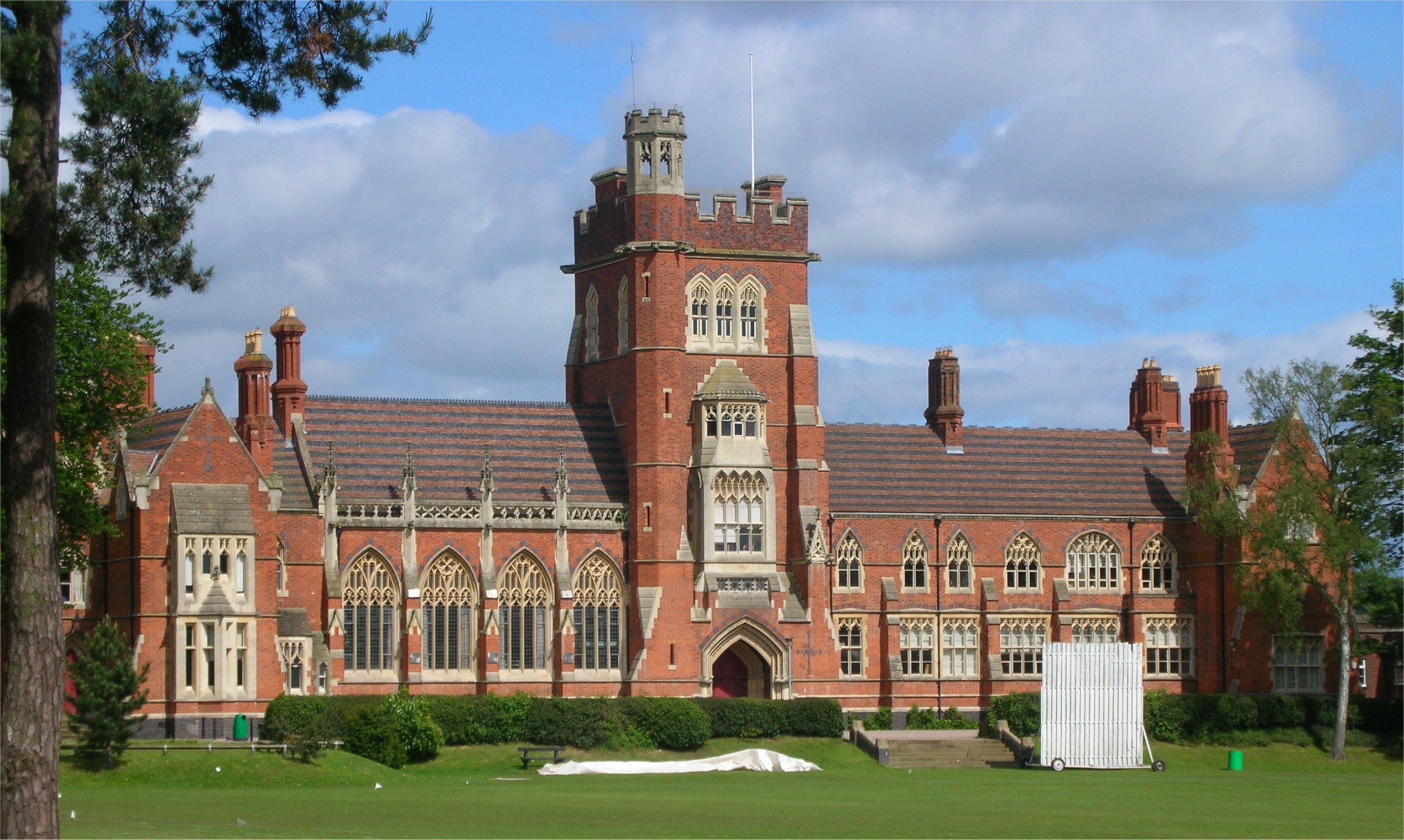|
Young People's Learning Agency
The Young People's Learning Agency for England, commonly referred to as the Young People's Learning Agency (YPLA), was a UK government body, based in Coventry, which funded further education for 16- to 19-year-olds in England. It closed on 31 March 2012, when its responsibilities were transferred to the newly created Education Funding Agency. History The YPLA was established by the Apprenticeships, Skills, Children and Learning Act 2009. On 1 April 2010 it replaced the Learning and Skills Council (LSC), which was the UK's largest non-departmental public body or quango. Other statutory powers and duties previously within the remit of the LSC were transferred to the Skills Funding Agency and local authorities in England. Under the Education Act 2011 the YPLA ceased to exist on 31 March 2012. Some statutory responsibilities reverted to the Secretary of State for Education, while many of the YPLA's functions were transferred to the newly created Education Funding Agency. Fun ... [...More Info...] [...Related Items...] OR: [Wikipedia] [Google] [Baidu] |
Non-departmental Public Body
In the United Kingdom, non-departmental public body (NDPB) is a classification applied by the Cabinet Office, Treasury, the Scottish Government, and the Northern Ireland Executive to public sector organisations that have a role in the process of national government but are not part of a government department. NDPBs carry out their work largely independently from ministers and are accountable to the public through Parliament; however, ministers are responsible for the independence, effectiveness, and efficiency of non-departmental public bodies in their portfolio. The term includes the four types of NDPB (executive, advisory, tribunal, and independent monitoring boards) but excludes public corporations and public broadcasters ( BBC, Channel 4, and S4C). Types of body The UK Government classifies bodies into four main types. The Scottish Government also has a fifth category: NHS bodies. Advisory NDPBs These bodies consist of boards which advise ministers on particular policy a ... [...More Info...] [...Related Items...] OR: [Wikipedia] [Google] [Baidu] |
Team Valley
Team Valley is a trading estate located in Gateshead. It is home to the Retail World retail park, with many large, international companies based in the area's trading estate. In 2017, there were approximately 700 companies on the estate, employing approximately 20,000 people. The residential area known as the Teams is adjacent to Dunston, Tyne and Wear, Dunston. History In the 1930s, the Government decided to spend nearly £2 million on this part of Gateshead, establishing the Team Valley Trading Estate as a well-planned industrial environment. The architect in charge was William Holford, with Hugh Beaver as chief engineer. It included a central headquarters, now used by English Partnerships, a bank, post office, and some modestly scaled industrial buildings, as well as some smaller industrial units for start-up ventures. These facilities were laid out along a wide central artery, known as ''Kingsway'', almost long. Work on the estate began in May 1936, and the first factory ... [...More Info...] [...Related Items...] OR: [Wikipedia] [Google] [Baidu] |
Vocational Education In The United Kingdom
Vocational education is education that prepares people for a skilled craft. Vocational education can also be seen as that type of education given to an individual to prepare that individual to be gainfully employed or self employed with requisite skill. Vocational education is known by a variety of names, depending on the country concerned, including career and technical education, or acronyms such as TVET (technical and vocational education and training; used by UNESCO) and TAFE (technical and further education). TVE refers to all forms and levels of education which provide knowledge and skills related to occupations in various sectors of economic and social life through formal, non-formal and informal learning methods in both school-based and work-based learning contexts. To achieve its aims and purposes, TVE focuses on the learning and mastery of specialized techniques and the scientific principles underlying those techniques, as well as general knowledge, skills and valu ... [...More Info...] [...Related Items...] OR: [Wikipedia] [Google] [Baidu] |
Organisations Based In Coventry
An organization or organisation (Commonwealth English; see spelling differences) is an entity—such as a company, or corporation or an institution (formal organization), or an association—comprising one or more people and having a particular purpose. Organizations may also operate secretly or illegally in the case of secret societies, criminal organizations, and resistance movements. And in some cases may have obstacles from other organizations (e.g.: MLK's organization). What makes an organization recognized by the government is either filling out incorporation or recognition in the form of either societal pressure (e.g.: Advocacy group), causing concerns (e.g.: Resistance movement) or being considered the spokesperson of a group of people subject to negotiation (e.g.: the Polisario Front being recognized as the sole representative of the Sahrawi people and forming a partially recognized state.) Compare the concept of social groups, which may include non-organiz ... [...More Info...] [...Related Items...] OR: [Wikipedia] [Google] [Baidu] |
Government Agencies Disestablished In 2012
A government is the system or group of people governing an organized community, generally a state. In the case of its broad associative definition, government normally consists of legislature, executive, and judiciary. Government is a means by which organizational policies are enforced, as well as a mechanism for determining policy. In many countries, the government has a kind of constitution, a statement of its governing principles and philosophy. While all types of organizations have governance, the term ''government'' is often used more specifically to refer to the approximately 200 independent national governments and subsidiary organizations. The main types of modern political systems recognized are democracies, totalitarian regimes, and, sitting between these two, authoritarian regimes with a variety of hybrid regimes. Modern classification systems also include monarchies as a standalone entity or as a hybrid system of the main three. Historically prevalent forms ... [...More Info...] [...Related Items...] OR: [Wikipedia] [Google] [Baidu] |
Funding Bodies Of England
Funding is the act of providing resources to finance a need, program, or project. While this is usually in the form of money, it can also take the form of effort or time from an organization or company. Generally, this word is used when a firm uses its internal reserves to satisfy its necessity for cash, while the term financing is used when the firm acquires capital from external sources. Sources of funding include credit, venture capital, donations, grants, savings, subsidies, and taxes. Funding methods such as donations, subsidies, and grants that have no direct requirement for return of investment are described as "soft funding" or "crowdfunding". Funding that facilitates the exchange of equity ownership in a company for capital investment via an online funding portal per the Jumpstart Our Business Startups Act (alternately, the "JOBS Act of 2012") (U.S.) is known as equity crowdfunding. Funds can be allocated for either short-term or long-term purposes. Economics In econ ... [...More Info...] [...Related Items...] OR: [Wikipedia] [Google] [Baidu] |
Defunct Non-departmental Public Bodies Of The United Kingdom Government
{{Disambiguation ...
Defunct may refer to: * ''Defunct'' (video game), 2014 * Zombie process or defunct process, in Unix-like operating systems See also * * :Former entities * End-of-life product * Obsolescence Obsolescence is the process of becoming antiquated, out of date, old-fashioned, no longer in general use, or no longer useful, or the condition of being in such a state. When used in a biological sense, it means imperfect or rudimentary when comp ... [...More Info...] [...Related Items...] OR: [Wikipedia] [Google] [Baidu] |
Education In England
Education in England is overseen by the Department for Education. Local government in England, Local government authorities are responsible for implementing policy for public education and State-funded schools (England), state-funded schools at a local level. State-funded schools may be selective ''grammar schools'' or non-selective Comprehensive school (England and Wales), ''comprehensive schools''. All state schools are subject to assessment and inspection by the government department Ofsted (the Office for Standards in Education, Children's Services and Skills). England also has Private schools in the United Kingdom, private schools (some of which are known as public school (United Kingdom), ''public schools'') and homeschooling, home education; legally, parents may choose to educate their children by any suitable means. The state-funded compulsory school system is divided into ''Key Stages'', based upon the student's age by August 31. The Early Years Foundation Stage is f ... [...More Info...] [...Related Items...] OR: [Wikipedia] [Google] [Baidu] |
Higher Education Funding Council For England
The Higher Education Funding Council for England (HEFCE) was a non-departmental public body in the United Kingdom, which was responsible for the distribution of funding for higher education to universities and further education colleges in England since 1992. It ceased to exist as of 1 April 2018, when its duties were divided between the newly created Office for Students and Research England (operating within United Kingdom Research and Innovation). Most universities are charities and HEFCE (rather than the Charity Commission for England and Wales) was their principal regulator. HEFCE therefore had the duty to promote compliance with charity law by the universities for which it was responsible. History HEFCE was created by the Further and Higher Education Act 1992 (which also created the Further Education Funding Council for England (FEFC), replaced in 2001 by the Learning and Skills Council). On 1 June 2010 HEFCE became the principal regulator of those higher education instit ... [...More Info...] [...Related Items...] OR: [Wikipedia] [Google] [Baidu] |
Gateshead
Gateshead () is a town in the Gateshead Metropolitan Borough of Tyne and Wear, England. It is on the River Tyne's southern bank. The town's attractions include the twenty metre tall Angel of the North sculpture on the town's southern outskirts, The Glasshouse International Centre for Music and the Baltic Centre for Contemporary Art. The town shares the Gateshead Millennium Bridge, Millennium Bridge, Tyne Bridge and multiple other bridges with Newcastle upon Tyne. Historic counties of England, Historically part of County Durham, under the Local Government Act 1888 the town was made a county borough, meaning it was administered independently of the county council. In the 2021 United Kingdom census, 2021 Census, the town had a population of 196,151. Etymology Gateshead is first mentioned in Latin translation in Bede, Bede's ''Ecclesiastical History of the English People'' as ''ad caput caprae'' ("at the goat's head"). This interpretation is consistent with the later English attes ... [...More Info...] [...Related Items...] OR: [Wikipedia] [Google] [Baidu] |
Braunstone Town
Braunstone is a town and civil parish in the district of Blaby (district), Blaby in Leicestershire, England. At the 2011 census the population of the town was 16,850. Braunstone is mentioned in the Domesday Book of 1086, giving a population of "two Soke (legal), sokemen and four Villein (feudal), villeins". The village remained a small settlement (population 238 in 1921) until 1925 when the Leicester Corporation compulsorily purchased the bulk of the Winstanley Braunstone Hall estate. It is just outside the city boundary of Leicester, and the part of the old civil parish now inside the city boundary is also called Braunstone. This part of the parish, which contains a large council estate, was detached in 1935 from the Blaby district and Braunstone Parish to become part of the county borough of Leicester, hence the present split. The use of the name Braunstone Town is more recent, and is an attempt by Braunstone Town Council to distinguish their village from the council estate ... [...More Info...] [...Related Items...] OR: [Wikipedia] [Google] [Baidu] |



